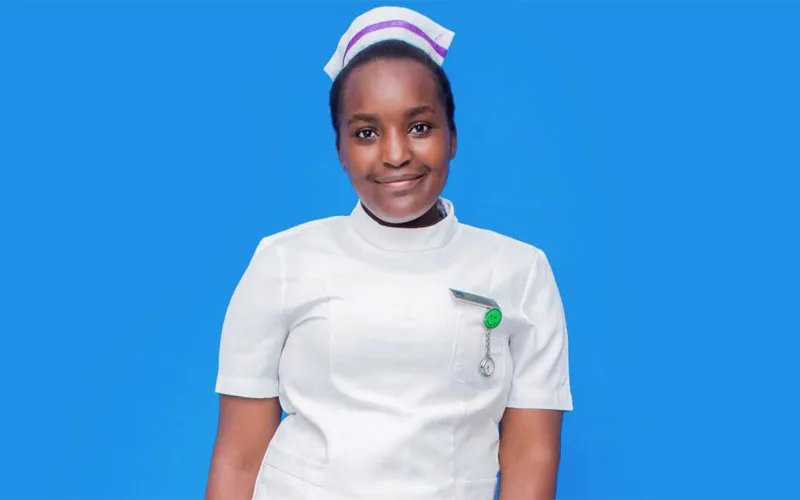While she had qualified to join university, her stepfather was not supportive of her campus studies and declined paying her tuition fees, the leaders of the Jesuit entity say, adding, “It was then that Divine was introduced to JRS’s Naweza Project. She received a scholarship that set her on her academic path.”
However, as the Malawian student was getting used to university, the COVID-19 pandemic struck leading to closure of institutions, a decision that saw Divine go back to her family at the 27-year-old refugee camp. The closure also meant she could not finish her degree by 2022 as she aspired.
“As for my schoolwork, Naweza provided tertiary scholarship students with laptops that allowed us to follow online courses. We were also provided with internet bundles to address issues of poor network connection, so that I could keep up with my courses,” Divine says.
When COVID-19 restrictions were lifted and Divine resumed her studies, “she had to adjust to a lack of resources such as unlimited access to the library—only small amounts of students are now allowed to use the facility, as a preventive measure,” JRS officials say.
“She also feared for her health when she had to return to clinical practice at Mzuzu Central Hospital, since the students were not given enough personal protective equipment. But being back on track with her studies renewed her hope,” they further narrate in the February 11 report.
(Story continues below)
Amid the challenges, Divine says she has managed to do some group work with friends. She further notes that the leadership of Naweza continues to offer her monthly internet bundles, an offering that helps her download necessary books and tutorials.
To young girls tempted to give up on their dreams because of poverty and other difficulties, Divine says, “Take up the challenge and forge ahead despite obstacles.”
The nursing student acknowledges that girls do not easily choose science subjects and admits that “it was not easy to score such good grades until she made it her personal passion and dedication.”
“I was fostered by my teachers and mentors to work hard in science so that I could be counted worthy among the few, those who become bright torches shining afar. I would urge young girls to study the sciences as they will give you an advantage in a competitive job market, especially in the medical field,” Divine says.
For her, nursing “is all about being compassionate and having a caring heart towards everyone, since it is a career where you tend to meet different people.”
“There is joy in being a helping hand, and the moment I care for someone else with unconditional love gives me a feeling of having achieved something extraordinary in life,” Divine continues in reference to nursing profession.
Instituted through a resolution of the United Nations General Assembly (UNGA) on 22 December 2015, the International Day of Women and Girls in Science recognizes the critical role women and girls play in science and technology.
This year’s event was marked under the theme, “Women Scientists at the forefront of the fight against COVID-19.”
ACI Africa adapted this story from the February 11 report by JRS Southern Africa.








